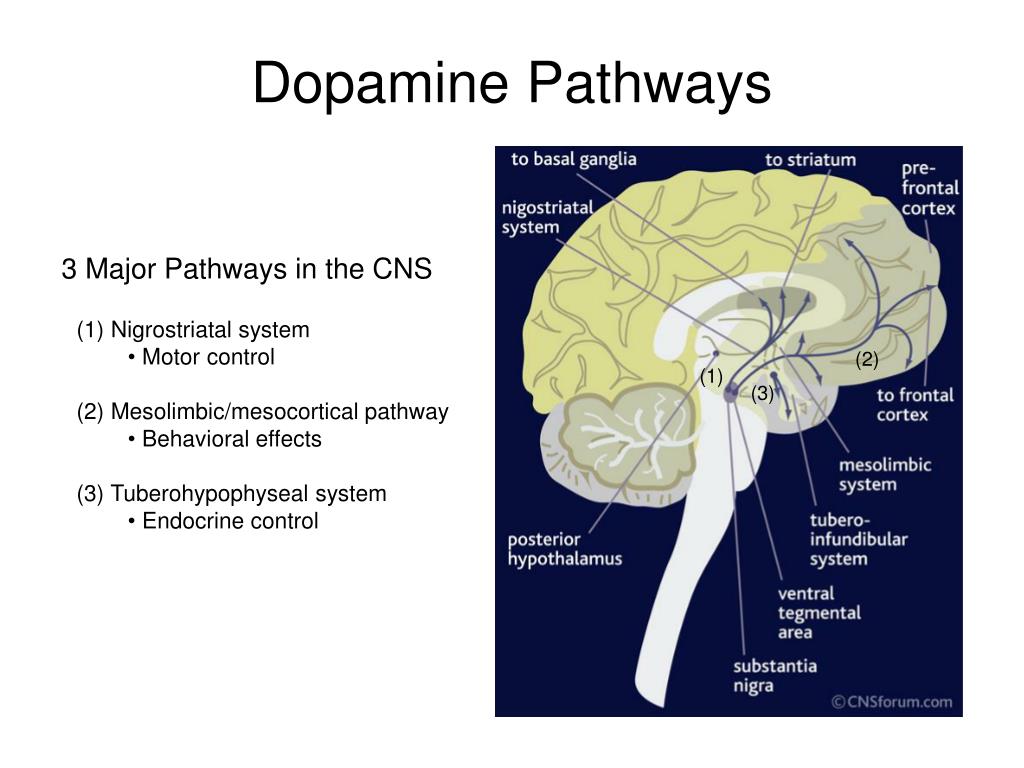Jekyll & hyde behavior
Understanding a Jekyl and Hyde Personality
Source: George Hodan/Public Domain Pictures
How can lovers feel love and hate in the same week or even an hour or be devoted for years and then cut off all good memories? This is a manifestation of the defense called splitting, first coined by Freud.
It starts in infancy. To separate from our mother (or earliest caretaker), we must make sense of contradictory feelings of love and anger toward her to develop a cohesive view (object constancy) of her and ourselves, meaning that we internalize steady images of our mother ourselves. When mothering isn’t sufficiently nurturing and consistent, we cannot integrate good and bad feelings about her. To cope, we mentally split the good and bad mother into two contrary representations. 1 Splitting keeps our mother’s “good” and loved aspects separate from the “bad” and hated aspects.
Hyde Becomes Jekyll and Jekyll Becomes Hyde
Splitting affects us internally and confuses us. It impairs our ability to see ourselves and others as whole persons. When we don’t fully develop object constancy, our ability to become autonomous is compromised. It creates turmoil in close relationships and is associated with an anxious attachment style and fears of abandonment.2 Splitting impairs our ability to remember that we love our partner when we’re angry or, conversely, that our partner is abusive when we feel close.
For example, A client I’ll call Wendy grew up in chaos with a drug addict mother, who sometimes was on the verge of death. Since her mother’s parenting was insufficient, Wendy struggled to accept herself and her long-term partner as good enough. Although occasionally he was emotionally distant, he was helpful and there for her most all the time, including when she had a serious illness.
When he went grocery shopping and forgot something, she flew into a rage, thinking, “How can I rely on and trust this man who can’t remember the three things I needed!” Beneath her anger were deep fears of abandonment stemming from her mother’s insecure and abandoning relationship. When childhood fears triggered Wendy, she could not recall that her partner loved and cared for her. Her lack of object constancy resulted in splitting, and she only saw him as flawed and untrustworthy. Fortunately, with therapy, she understood her overreaction and quickly reconnected with the man she loved in the present.
When childhood fears triggered Wendy, she could not recall that her partner loved and cared for her. Her lack of object constancy resulted in splitting, and she only saw him as flawed and untrustworthy. Fortunately, with therapy, she understood her overreaction and quickly reconnected with the man she loved in the present.
Splitting contributes to idealization and devaluation, causing Wendy to react to her projection rather than reality. Wendy projected her mother on her mate and responded to her projection. Someone else might take impulsive action, such as breaking up or cheating, all the while denying the ensuing heartache stemming from their love and need for their partner.
I’ve treated men with mixed feelings toward their mothers who projected them onto their wives. They acted on them and had affairs and fall in love with another woman they initially idealize. When reality sets in, they have difficulty divorcing and letting go of the mothering aspects of their wives, to whom they realize they’re devoted.
Conversely, you may deny or forget about abuse when your partner is flattering or apologetic. This happens with partners of addicts and abusers who long to be loved and told so. They go into denial about the abuse, believe in broken promises to reform, and/or accept crumbs from their partner to hear those three little words. They claim to love Dr. Jekyll and hate Mr. Hyde but don’t see their partner as the same person. They, too, suffer from splitting due to unresolved inner conflicts about their relationship with one or both parents.
Spitting During Dating
Splitting wrecks havoc during dating, when couples naturally tend to idealize their partners and don’t know each other well. Their anxiety feeds a dance of intimacy with avoidant partners. Between dates, you may not be able to recall your partner’s positive or negative traits. If you have an anxious attachment, you may imagine your girlfriend is losing interest or that your boyfriend is flirting. You feel compelled to frequently text or seek reassurance. Not only is it difficult to stay emotionally connected to your partner when apart, but you may also conjure up negative characterizations that are abusive, ungratifying, or abandoning, which feel are very real until you again talk or see each other. Then you realize it was all in your mind as you struggled to differentiate the present from your unhealed past. (To complicate matters, it may also be accurate, but splitting confuses you.)
Not only is it difficult to stay emotionally connected to your partner when apart, but you may also conjure up negative characterizations that are abusive, ungratifying, or abandoning, which feel are very real until you again talk or see each other. Then you realize it was all in your mind as you struggled to differentiate the present from your unhealed past. (To complicate matters, it may also be accurate, but splitting confuses you.)
What You Can Do
- When triggered, write about your feelings and track them back to your childhood.
- Make a list of facts about your partner to help you stay in the present.
- Review the denial checklist.
- Trust the objective views of friends.
- Get therapy to heal your past.
If your partner is generally a caring, reliable person, but shadows from your past haunt you, actively visualize and feel grateful for all the positive he or she brings to your life. Relive positive, loving memories.
If your partner is abusive, catalog the violations to remind yourself.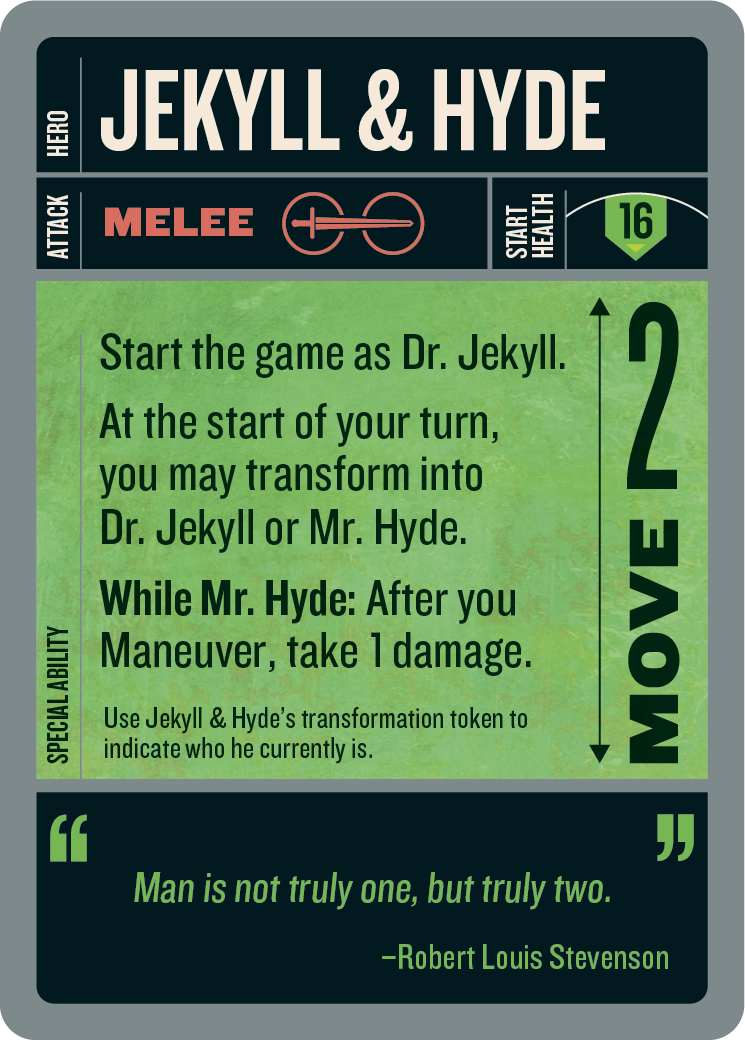 When Dr. Jekyll shows up, don’t be swayed only by words, but look for respect for your needs and feelings.
When Dr. Jekyll shows up, don’t be swayed only by words, but look for respect for your needs and feelings.
© Darlene Lancer 2021
The Case of Dr. Jekyll & Mr. Hyde — Sara Weand, LPC
Emotion Dysregulation: BPD’s Most Prominent SymptomYou’ve been told you are “Bipolar” or that your moods make it hard to be around you. You think you may have a problem with anger and are irritable all the time… or, that your anger has gotten you in trouble before- like, to the point where you’ve lost friends due to the words you slew at them in an argument, or during that time your temper flared so high that there’s now a hole in the wall staring at you, evidence that you lost your shit.
You’re emotionally reactive and you don’t know why your emotions and feelings seem to control everything you do. Honestly, it could literally be anything that sets you off and triggers that explosion- from the way she looked at you or how he complimented how the bartender was dressed. And, it’s not just the intense anger, (although that’s a huge piece of it), it’s the high anxiety, overwhelming sadness, non-relenting guilt, and all of the other “not so fun”, oh so painful emotions that just seem to take over. It feels like one little thing, just flips a switch and you’ve taken off on the emotional roller coaster again.
And, it’s not just the intense anger, (although that’s a huge piece of it), it’s the high anxiety, overwhelming sadness, non-relenting guilt, and all of the other “not so fun”, oh so painful emotions that just seem to take over. It feels like one little thing, just flips a switch and you’ve taken off on the emotional roller coaster again.
It’s so hard to cope with painful emotions.
There’s just so much emotional suffering. You’ve tried to ignore your feelings and judged yourself so harshly for not being able to just switch them off. It’s so f’ing exhausting and no one seems to get it. No one seems to get that your extreme behaviors are the way you try to help yourself or get others to help you not be in such emotional pain.
Emotion Dysregulation Disorder; a more accurate term for BPD
Emotion Dysregulation is the hallmark symptom of Borderline Personality Disorder. It’s so profound, that a more accurate term would be Emotion Dysregulation Disorder.
People with BPD have a high emotional vulnerability, meaning they are “highly sensitive” and have problems regulating their emotions (i.e. managing their feelings in appropriate and healthy ways). Their emotions feel so intense and overwhelming, that they don’t have the skills (yet) to cope with them, hence, they react to their emotions. In other words, their behavior is mood-dependent.
From the Borderline’s perspective, they experience a distressing feeling, don’t know how to cope with it and before they know it, their behavior changes to reflect that feeling. It’s as though they become their emotion.
Dr. Marsha Linehan describes the Borderline experience with emotion dysregulation best-
People who have a loved one or are in a relationship with someone with BPD often describe their experience as “walking on eggshells” (because it doesn’t take much to provoke an emotional response), in an effort to not “set them off”. To most people, these rapid changes in mood appear to be extreme and “over the top”. These seemingly “out of nowhere” emotional expressions can be symbolically compared to that of Dr. Jekyll and Mr. Hyde.
To most people, these rapid changes in mood appear to be extreme and “over the top”. These seemingly “out of nowhere” emotional expressions can be symbolically compared to that of Dr. Jekyll and Mr. Hyde.
Emotional Dysregulation: Symbolic Dr. Jekyll & Mr. Hyde
In this classic story, Dr. Jekyll is a kind, caring doctor who, in an effort to repress his “darker side”, creates a serum in an attempt to mask his darker persona (a.k.a. Mr. Hyde). The novel describes Dr. Jekyll’s efforts to keep Mr. Hyde hidden deep within himself. Initially, Dr. Jekyll’s efforts appear to work as he’s able to literally keep Mr. Hyde from surfacing. However, as the story progresses, Dr. Jekyll becomes increasingly unable to maintain control over Mr. Hyde. Subsequently, Mr. Hyde becomes stronger- so much so, that Dr. Jekyll loses all control and literally becomes Mr. Hyde.
As with Dr. Jekyll, someone with BPD attempts to maintain control over all painful emotions or feelings deemed as “bad”, such as anger, guilt, frustration, or sadness. Whereas Dr. Jekyll concocts a serum, a Borderline individual will often instruct herself to simply not feel a particular way, in order to solve the problem of having to experience the “bad” emotion.
Whereas Dr. Jekyll concocts a serum, a Borderline individual will often instruct herself to simply not feel a particular way, in order to solve the problem of having to experience the “bad” emotion.
As with both Dr. Jekyll and someone with BPD, their efforts to overly control or hide the parts of themselves (i.e. “Mr. Hyde” or painful, “bad” emotional experiences) are unsuccessful. For the person with BPD, this exercise in control becomes impossible to execute- They already are emotionally vulnerable and the sudden appearance of extreme behavior is their effort to both take care of themselves and to let those around them know to take better care of them. Remember that a Borderline individual is already emotionally intense and has issues managing emotions, so anger would obviously be included in this. For the people involved in the lives of both the Borderline individual and Dr. Jekyll, the sudden appearance of an emotional expression appears just as unexpected and “out of the blue” as that of Mr. Hyde’s sudden appearance.
Hyde’s sudden appearance.
For both Dr. Jekyll and the Borderline individual, their efforts to hide, ignore, avoid, escape or mask parts of themselves are not successful. Such as with Dr. Jekyll whose efforts to keep Mr. Hyde hidden, end up with disastrous results, a Borderline individual’s behavior and subsequently life, end up being controlled by those very same emotions she has tried so hard to get rid of.
There is hope & effective treatment for BPD
As a DBT therapist, I provide online Dialectical Behavioral Therapy (DBT), the “gold standard” of borderline personality disorder treatment. Here’s the thing-
I
know you’re trying your best. I know you want to improve your life. I get it.I get that you feel like relationships only bring pain. I get that you’ve tried other ways to solve the problems in your life, only to make things worse. I get that you are desperate for approval from the people you love the most and yet you keep pushing them farther and farther away from you.
I get that you don’t want to just keep existing in a life that only seems to bring hardship and pain.
When you work with me, your DBT therapist, you can learn practical skills to help you find relief from your emotional suffering, strengthen your relationships, ditch the destructive behavior, and find acceptance and peace within yourself.
As a DBT therapist, I help people who are struggling with intense anxiety & suffer from Borderline Personality Disorder, create a life worth living.
My specialties include anxiety therapy, DBT for BPD, and trauma counseling.
Your overwhelming, painful emotions don’t have to run your life. You deserve to find relief from your emotional suffering and can learn the skills to cope with life, build healthy relationships, and have a life worth living. Give me a call today at 717-685-5074 or click here, to schedule your free, 15-minute, video consultation.
Dream Novel: The True Story of Dr. Jekyll and Mr.
 Hyde
Hyde Heir to an impressive fortune, talented craftsman and leader of a gang that struck terror into the hearts of Edinburgh's wealthiest citizens. All this is about one person who inspired Stevenson to write The Strange Case of Dr. Jekyll and Mr. Hyde. Forbes tells his true story
Robert Louis Stevenson spent the night delirious with fever, trapped in a nightmare that surrounded him like clouds of fog, where memories and fragments of thought mingled. The disease haunted Stevenson all his life, and especially after he and his wife Fanny moved to the coast in the English county of Dorset in 1884. All evening he tried to overcome a respiratory infection, but the fever prevented him from falling asleep soundly. He cried out several times in his sleep before Fanny woke him.
To her surprise, her husband was angry with her. He would have preferred to stay in this foggy tangle of thoughts where an idea was already beginning to form - a great story about a monster and its mirror opposite, a gentleman. Stevenson, then in his early thirties having already achieved fame as a writer after the release of Treasure Island (1881), got out of bed and went to breakfast with his family. At the table, Stevenson was apparently "in a very distracted state of mind," his stepson Lloyd Osborne later described: he "hurried to eat - an unusual behavior for him - and when he left, he said that he was working on a new story with incredible success." The writer left very clear instructions: he should not be disturbed even if the house caught fire.
He would have preferred to stay in this foggy tangle of thoughts where an idea was already beginning to form - a great story about a monster and its mirror opposite, a gentleman. Stevenson, then in his early thirties having already achieved fame as a writer after the release of Treasure Island (1881), got out of bed and went to breakfast with his family. At the table, Stevenson was apparently "in a very distracted state of mind," his stepson Lloyd Osborne later described: he "hurried to eat - an unusual behavior for him - and when he left, he said that he was working on a new story with incredible success." The writer left very clear instructions: he should not be disturbed even if the house caught fire.
For the next three days, Stevenson wrote constantly, lying in bed and filling out "page after page." Fanny later reflected on this period of their lives and what inspired Stevenson's marathon effort in writing The Strange Case of Dr. Jekyll and Mr. Hyde. She recalled that her husband had recently read an article in a French scientific journal about the unconscious, about the structure of the mind and about hidden desires. However, this was not the only thing Stevenson was thinking about when he had that dream. There was something else, and Fanny knew it: it was "his memories of Deacon Brodie."
Jekyll and Mr. Hyde. She recalled that her husband had recently read an article in a French scientific journal about the unconscious, about the structure of the mind and about hidden desires. However, this was not the only thing Stevenson was thinking about when he had that dream. There was something else, and Fanny knew it: it was "his memories of Deacon Brodie."
Who is Deacon Brodie?
At first glance, Brody looked like any other wealthy young man from 18th century Edinburgh. He was a successful craftsman, especially known for his carpentry skills. A bookcase and a chest of drawers of his work even stood in the house where Stevenson, also a native of Edinburgh, spent his childhood.
Brody was a member of the city council and held the position of "Deacon of the corporation of artisans" - that's why he was called the Deacon. Born William Brodie, he was born in 1741 in the family of a successful builder. When his father died, Brody inherited a fortune of £10,000, a hefty sum (about $2.1 million today) at a time when the average Brit could only earn a few pounds a year.
Born William Brodie, he was born in 1741 in the family of a successful builder. When his father died, Brody inherited a fortune of £10,000, a hefty sum (about $2.1 million today) at a time when the average Brit could only earn a few pounds a year.
Brody was earning up to £600 a year and was able to join the ranks of the richest people in Edinburgh. This success gave the slender, youthful man "a special lightness in his gait" and allowed him to dress well, often only in white, one of Brodie's biographers later described.
But Brody also had a dark side. He loved gambling and constantly lost large sums at cockfights. He himself kept several roosters in a pen in his own house, a spacious mansion with high ceilings and a fresco depicting the biblical scene of the Adoration of the Magi. Brody drank and drank in a variety of places: he was a member of the aristocratic "Cape Club" of Edinburgh and a regular in one of the most dubious taverns in the city - a tavern on Fleshmarket Close.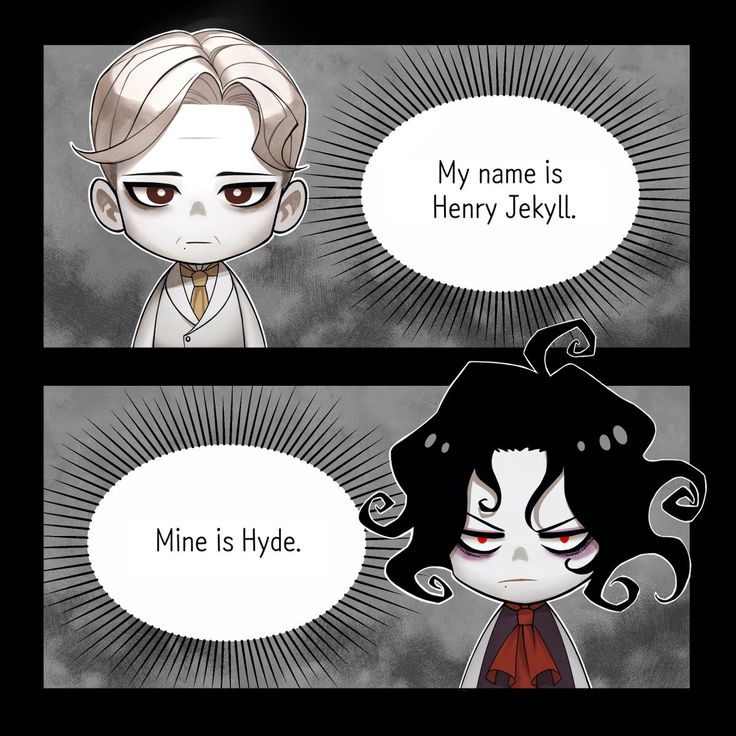 He had at least two mistresses who bore him five children.
He had at least two mistresses who bore him five children.
Presumably, it was extravagance that forced him to leave secular society for the sake of the social bottom and become one of the most notorious criminals in Britain. At night, he turned into a first-class robber, hiding his face behind a crepe mask. He operated in the city for 20 years. Often he robbed friends and acquaintances, finding a convenient moment to steal their keys, make duplicates, quietly return the original, and later sneak into their house or shop using a copy.
Brodie probably began leading a double life as early as 1768, but his most active period began in July 1786 and lasted 18 months. At that time, he became close to the two men who would become his main associates: the traveling salesman George Smith and John Brown, a convicted felon who had escaped from prison in Scotland for fear of deportation to an overseas colony. All three were addicted to alcohol and cockfighting and quickly found a common language. From that moment on, the Brody gang began a series of robberies, starting with breaking into a goldsmith's shop.
All three were addicted to alcohol and cockfighting and quickly found a common language. From that moment on, the Brody gang began a series of robberies, starting with breaking into a goldsmith's shop.
This was followed by a robbery of a jewelry store in Bridge Street, from where the criminals took out ten expensive watches; the groceries in St. Andrew Street, where they obtained 350 pounds of extremely valuable black tea; and even the University of Edinburgh, which lost the school's precious heritage, the silver baton, because of the bandits.
By January 1788, "the authorities were making every possible effort to find" the perpetrators of the growing number of thefts, wrote the press of the time, claiming that the crimes "struck terror into the hearts of the wealthy" residents of Edinburgh.
Fearless Brody, meanwhile, was planning the gang's biggest business. The city's excise office was too tempting a target for him to resist. So one hot spring evening, after a meal of chicken, herring, gin, and beer, Brody, Smith, Brown, and another gang-aligned man broke into the office armed with pistols. However, they could not profit much - suddenly an employee returned to the building, and Brody and his accomplices were forced to hastily and disorganized hide. The evening was ruined.
The city's excise office was too tempting a target for him to resist. So one hot spring evening, after a meal of chicken, herring, gin, and beer, Brody, Smith, Brown, and another gang-aligned man broke into the office armed with pistols. However, they could not profit much - suddenly an employee returned to the building, and Brody and his accomplices were forced to hastily and disorganized hide. The evening was ruined.
The police redoubled their efforts, and the Edinburgh newspapers reprinted investigators' appeals to the public for information. The announced bounty was increased to £150 and pardons were promised to members. This was an obvious ploy to break up the gang. But she worked.
Brown surrendered first, followed by Smith. Brody fled the country, going to Amsterdam, "barely escaping ... from a pack of bloodhounds that took the trail," he himself described in a letter to a friend. After searching his house, the police found a set of picks and fake keys and pistols hidden near the cage of his favorite fighting cocks. A scandal erupted, the essence of which was summarized in the editorial column of the Edinburgh Evening Courant: “With what amazement, all the friends of virtue and honesty must have discovered that a person was accused of a crime <…> who had recently achieved recognition among fellow citizens?”
After searching his house, the police found a set of picks and fake keys and pistols hidden near the cage of his favorite fighting cocks. A scandal erupted, the essence of which was summarized in the editorial column of the Edinburgh Evening Courant: “With what amazement, all the friends of virtue and honesty must have discovered that a person was accused of a crime <…> who had recently achieved recognition among fellow citizens?”
Brody was arrested a few months later. The trial was quick and lasted less than a day, but the courtroom was packed - the public was keenly interested in the case. Brody himself throughout the proceedings showed only impeccable manners. "Absolutely restrained .... respectful of the court, and when anything absurd happened in his presence, he smiled like an impassive observer," even when the jury returned a verdict: "guilty." This is how the Edinburgh Advertiser described the behavior of the defendant.
Brody was sentenced to hang for his crimes. In October of the same year, he went to the gallows, still dressed elegantly and with his hair carefully powdered in the latest fashion. "The last step in the air ... marked the end of Deacon Brodie's career," Stevenson wrote in Edinburgh: Pictorial Notes, the first time Brody was mentioned in his publications. “He was remembered as a man who, bogged down in an avalanche of lies, made his way from the magistrate’s dining room to the thieves’ den and picked locks in dim light.”
From nightmares to horror classics
Deacon Brody became Stevenson's Kilgore Trout, his Randall Flagg. A character he couldn't leave. After Edinburgh in 1878 Stevenson and his friend, the poet W.E. The Henleys decided to create a play about Brodie's life. They put on a five-act play, Deacon Brodie, or the Double Life, which loosely described some of the deacon's antics. Among other things, the authors turned him into a cold-blooded killer. In one of the scenes towards the end of the play, his sister finds out about his atrocities:
Among other things, the authors turned him into a cold-blooded killer. In one of the scenes towards the end of the play, his sister finds out about his atrocities:
Mary: Willie, Willie!
Brodie: (picks up a bloody dagger from the table) Do you know what this is?
Mary: Ah! What is this!
Brody: Blood. I killed a man.
Mary: You? …
Brody: I'm a killer. I used to be a thief. Your brother... the old man's only son!
Stevenson's dialogue was flawed, and "Deacon Brodie" failed almost immediately after its premiere, which took place in Bradford, England shortly after Christmas 1882.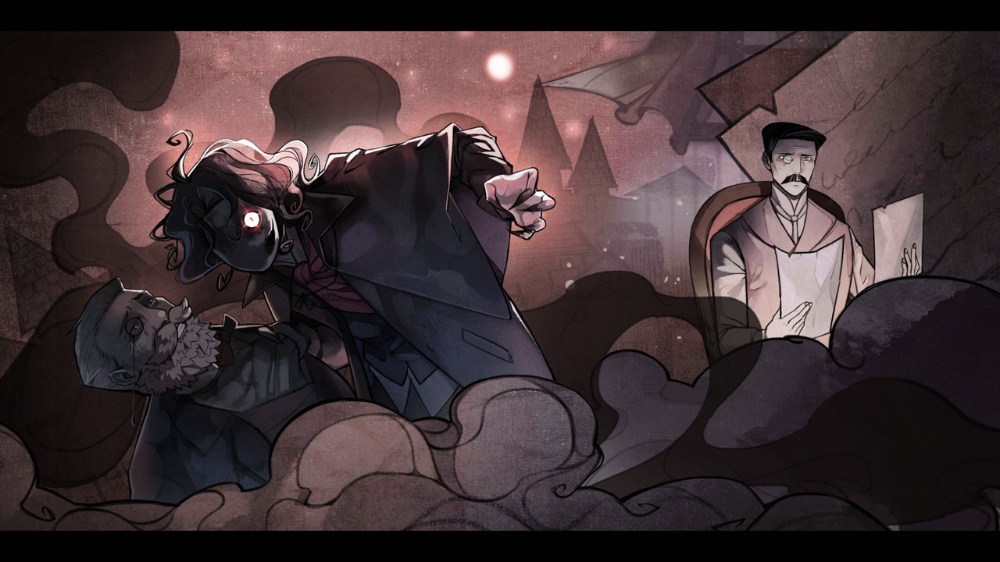 “Cardboard scenes and characters,” said George Bernard Shaw about the play.
“Cardboard scenes and characters,” said George Bernard Shaw about the play.
However, four years later, Stevenson's The Strange Case of Dr. Jekyll and Mr. Hyde was praised on both sides of the Atlantic, and The New York Times called it "absolutely delightful", comparing it to Poe's "dark masterpieces". “History was either a glimpse of intuitive psychological research, a flash of inspiration, or the result of careful planning and selection of all the pieces of an exquisite and incomprehensible puzzle,” the article concluded.
Stevenson made no secret of how this idea came to him. When reporters met him during his trip to New York, Stevenson, still pale and hollow-eyed, recounted the origins of his kind doctor and said that "the story came to him like a gift."
“I'm so used to making up stories that I even make them up in my sleep,” he said. “Sometimes they come to me in the form of nightmares, so much so that I scream ... As soon as I wake up - and a good story always wakes me up - I get to work and write it down.”
“Sometimes they come to me in the form of nightmares, so much so that I scream ... As soon as I wake up - and a good story always wakes me up - I get to work and write it down.”
Several occasional critics have argued that the novel is an implausible fiction full of cheap horror stories. But Stevenson only grinned in response. "Such criticism," he said, "is like a donkey's roar."
Translation by Natalia Balabantseva
Top 20 Books of 2019: Booker Laureates and Jamaican Tolkien
Read more about the ranking Top 20 Books of 2019: Booker Laureates and Jamaican Tolkien
20 photos
“Russians are like Dr. Jekyll and Mr. Hyde” US Deputy Secretary of State Rose Gottemoeller interview Meduza
Photo: Sergei Karpov / TASS / Vida Press
In early April, US President Barack Obama announced the signing of a framework agreement on the Iranian nuclear program. According to Obama, a "historic deal" was reached, as a result of which Iran will abandon the development of nuclear weapons, and the whole world will become safer. In the same month, Rose Gottemoeller, US Under Secretary of State for Arms Control and International Security, flew to the Baltic States and Poland. Meduza journalist Konstantin Benyumov met with Gottemoeller in Riga to talk about the Iranian nuclear program, the Middle East conflict, the Ukrainian crisis and other global security issues.
According to Obama, a "historic deal" was reached, as a result of which Iran will abandon the development of nuclear weapons, and the whole world will become safer. In the same month, Rose Gottemoeller, US Under Secretary of State for Arms Control and International Security, flew to the Baltic States and Poland. Meduza journalist Konstantin Benyumov met with Gottemoeller in Riga to talk about the Iranian nuclear program, the Middle East conflict, the Ukrainian crisis and other global security issues.
- Tell us about the agreement on the Iranian nuclear program. What goals does it pursue, what do you hope to achieve with its help?
- It must be remembered that this is a framework agreement, more precisely, a more detailed version of the framework agreement adopted in September last year. Until June, when all the provisions of the treaty should be implemented, there is still a lot to be done. Among negotiators they like to say: until everything is done, nothing is done. But I, as a veteran of arms control, must say that the accuracy with which the agreement is drawn up will give a very high guarantee that the production of nuclear fuel in Iran will stop.
But I, as a veteran of arms control, must say that the accuracy with which the agreement is drawn up will give a very high guarantee that the production of nuclear fuel in Iran will stop.
Why is this important? Nuclear fuel, plutonium or enriched uranium, is required to build an atomic bomb. The agreement spelled out not only a nominal refusal of Iran to produce fuel, but also very strict principles of monitoring and verification. All this creates conditions for Iran to return to the status of a non-nuclear state in accordance with the nuclear non-proliferation treaty, a state that is in good standing both in the IAEA and for all participants in the non-proliferation treaty. So I think it's a very good agreement. I hope that all its requirements will be met in time, and it will be able to come into force.
— After so many years of confrontation over the Iranian nuclear program, how much can the West and the world community trust Iran — and vice versa?
— Trust is an important factor in any negotiation where you have to agree on a lot of technical details. We have a good environment, not least because both [U.S.] Secretary of Energy Ernst Moniz and Minister Zarif are both physicists who studied at MIT in Iranian Atomic Energy Ali Akbar Salehi, who graduated from MIT at 1977 and also participated in the negotiations - ed. Meduza ). The fact that they studied at the same university certainly contributed to the establishment of an atmosphere of trust in the negotiations. But trust alone, of course, is not enough. As Reagan once said, trust but verify. However, the Iranian agreement initially assumes working monitoring and verification mechanisms.
We have a good environment, not least because both [U.S.] Secretary of Energy Ernst Moniz and Minister Zarif are both physicists who studied at MIT in Iranian Atomic Energy Ali Akbar Salehi, who graduated from MIT at 1977 and also participated in the negotiations - ed. Meduza ). The fact that they studied at the same university certainly contributed to the establishment of an atmosphere of trust in the negotiations. But trust alone, of course, is not enough. As Reagan once said, trust but verify. However, the Iranian agreement initially assumes working monitoring and verification mechanisms.
Rose Gottemoeller joined the State Department in 2009. She has been acting as Deputy Secretary of State for Arms Control since the beginning of 2012, and was officially approved in March 2014. Gottemoeller led the American delegation at the talks on a treaty on the limitation of strategic offensive arms. Since 2000, she worked at the Carnegie Endowment, including director of its Moscow office from 2006 to 2008.
Six-party talks on the Iranian nuclear program at a meeting in Lausanne, Switzerland. April 2, 2015.
Photo: State Department / Sipa USA / Scanpix
- And yet, will the rise of Iran and the growth of its regional influence contribute to peace in the Middle East?
- President Obama spoke about this when talking about reaching an agreement with Iran. The agreement contains great potential for establishing stability and security in the region. But for this there is still a lot to be done, and most importantly, Iran must have time to stop the nuclear program, and the IAEA must check and confirm everything; only then will we be able to start lifting the sanctions. But we can say for sure: the United States is confident that, from the point of view of the nuclear security of the region, control over Iran's nuclear program will contribute to stability and security in the region, as well as international security. Otherwise, there would be no point in these negotiations.
- This point of view is not shared in Israel. Judging by what Israeli officials say, the government is confident that Iran will not give up trying to create nuclear weapons, and Israel in such a situation should be sure that it can destroy Iranian nuclear facilities if something happens.
- In personal meetings with Israeli colleagues, I always say the same thing that I say publicly: wait, let's see how the situation develops. It is necessary to evaluate how the prescribed monitoring and verification mechanisms work (some of them, by the way, are quite complex from a technical point of view), and only then judge whether the final agreement works. It's important to be patient right now. In addition, I agree with the statements of many American experts and officials that one of our key goals here is to make sure that if Iran starts building nuclear weapons, we will know about it in advance. The agreement allows us to learn about such developments at least a year in advance. This is enough to adapt and develop responses. And attempts to destroy the Iranian nuclear infrastructure from the air will not give time for warning. Therefore, in Washington, they believe that the bombings, which are indeed sometimes remembered, will lead to nothing.
This is enough to adapt and develop responses. And attempts to destroy the Iranian nuclear infrastructure from the air will not give time for warning. Therefore, in Washington, they believe that the bombings, which are indeed sometimes remembered, will lead to nothing.
- In this regard, how do you assess Russia's statement about its readiness to supply S-300 anti-aircraft missile systems to Iran?
- The decision to ban the supply of these systems to Iran was made by the UN Security Council. And we are very upset... We are upset that Russia considered it possible to make a decision on the supply unilaterally, without involving UN mechanisms.
- Do you take the fact that Russia made this statement just a few days after the announcement of an agreement on Iran's nuclear program as a stab in the back?
- You need to ask the Russians what they had in mind.
- The question is whether the decision to supply the S-300 will affect the performance of the agreement on the nuclear program.
- No way! This agreement allows us to keep our eyes on the Iranian nuclear program and even be inside it. We have never had such an understanding of what is happening with the program, whether it is actually curtailed. And, in the worst case, it will allow us to understand in time if Iran decides to violate the agreement and respond.
- And what could be the answer?
- Of course, adequate measures will be taken. In particular, the agreement provides for the immediate return of sanctions.
- How interested do you think Iran is in lifting sanctions?
- This desire brought Iran to the negotiating table. Trust me, I've been working on negotiations with Iran since the Clinton administration, and for 20 years we've been trying to get the Iranians to talk, trying to get them to take the talks seriously. It seems to me that the sanctions regime, the pressure of sanctions on the economy played a key role in the negotiation process.
— How do you assess the role of Russia in these negotiations?
- Despite the crisis in Russian-American relations, despite the fact that we are very concerned about Russia's aggressive actions, the seizure of the Crimean peninsula, support for the separatists in Donetsk and Luhansk, in some areas Russia is an excellent partner. And during the Six-Party Talks, Russia provided great political support. But her scientific and technical experience was also important: Russia has excellent specialists in the nuclear fuel cycle, and, as far as I understand, her technical assistance was invaluable.
See also: “Russian humanitarian aid is tank fuel.” US Assistant Secretary of State Victoria Nuland's interview with Meduza
Well, I will add that there are other examples, such bright spots in our bilateral relations, which, in general, have been greatly overshadowed by recent events. Firstly, this is the fulfillment of obligations under the Treaty on the Limitation of Strategic Offensive Arms (START III), in the preparation of which I participated. Secondly, the elimination of chemical weapons in Syria. In general, weapons of mass destruction is an area in which we know how to cooperate.
Secondly, the elimination of chemical weapons in Syria. In general, weapons of mass destruction is an area in which we know how to cooperate.
- How do you assess Russia's statements about its readiness to deploy strategic forces in the Crimea and the Kaliningrad region?
- This is completely irresponsible behavior, both in terms of regional stability and international security. Ukraine, at the beginning of its independence, made a historic and difficult decision to renounce the possession of nuclear weapons. We do not recognize the annexation of Crimea, for us it is still the territory of Ukraine, and statements about the return of nuclear weapons to this territory are an insult to the responsible choice made by Ukraine.
In my opinion, Ukraine is the real hero of the nuclear non-proliferation regime. But, by the way, so far there has been no evidence that Russia really intends to deploy nuclear weapons in Crimea - so far these are just statements by officials and media reports.
- So you think this is just provocative behavior? Like with flights near the airspace of NATO countries?
- There are two points here. The number of sorties carried out by Russian fighters and bombers has recently increased. But the exercises are understandable, the United States, for example, is also conducting them. The problem with Russian flights is their irresponsible, risky nature: pilots turn off transponders, fly too close to civilian aircraft and even military aircraft that are rising to intercept. This is dangerous behavior that provokes international incidents. Teachings shouldn't be done this way.
— Neighboring countries seem to be most concerned about Russia's actions — primarily the Baltic countries and Poland. Estonia, for example, recently asked NATO to deploy permanent forces on its territory. Are the US and NATO ready for such a step? And wouldn't the deployment of a contingent near the Russian borders be irresponsible on the part of the Western allies?
— Since the beginning of the Ukrainian crisis, we have maintained a permanent presence in the region. Our military believes, and I agree with them, that a permanent presence, continuous training in interaction with the armed forces of each of the countries, the transfer of forces and equipment - all this makes it possible to respond very quickly to a crisis, even at a distance. And this is very important to demonstrate. Not so long ago, we conducted the Dragoon Ride exercise ("Departure of the Dragoons"), in which a significant number of American troops and equipment were transferred to Poland and Germany through the Baltics - we showed that we are very mobile and are able to quickly and efficiently transfer forces across Europe .
Our military believes, and I agree with them, that a permanent presence, continuous training in interaction with the armed forces of each of the countries, the transfer of forces and equipment - all this makes it possible to respond very quickly to a crisis, even at a distance. And this is very important to demonstrate. Not so long ago, we conducted the Dragoon Ride exercise ("Departure of the Dragoons"), in which a significant number of American troops and equipment were transferred to Poland and Germany through the Baltics - we showed that we are very mobile and are able to quickly and efficiently transfer forces across Europe .
These are all important deterrents to aggression. The other day I was in Poland, where the deployment of Patriot anti-aircraft missile systems was recently practiced. And the fact that we can bring and deploy these complexes in Poland in two days is also a very strong signal. I think that the Russian Federation, which understands the full significance of high mobility, will appreciate that such opportunities exist in this region.
"Dragoon Ride" in Bialystok, Poland, March 24, 2015.
Photo: Alik Keplicz / AP / Scanpix
- In other words, is there an effective strategy that allows you to contain Russia, but at the same time not provoke it, by deploying significant forces near its borders?
- Exactly. In my opinion, this is a very effective strategy, with a great deterrent potential, which allows for the most effective training activities and increase the combat readiness of the armed forces in the region. At the same time, it presupposes the correct distribution of resources within NATO. After all, in addition to the Eastern European region, the alliance is focused on countering ISIS, on settling in the Middle East. But, I repeat, this strategy also fully meets the needs of the Baltic countries, which are interested in deterring Russian aggression.
- Is it possible to involve Russia or Iran in measures to counter the "Islamic State"?
- For example, we do not have direct coordination with Iran, but some parallel efforts are being made in this direction.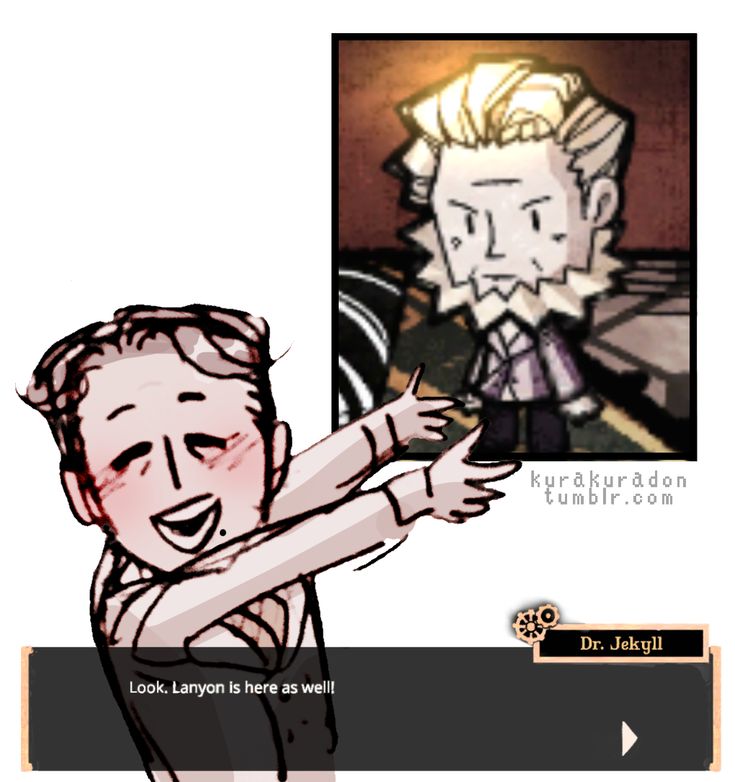 Yes, we have common goals in some areas. This also applies to Russia. I can't say more.
Yes, we have common goals in some areas. This also applies to Russia. I can't say more.
- Some time ago I spoke with several representatives of NATO. I was told that all military cooperation with Russia has been completely stopped. Is it the same in Russian-American relations - or do some channels still remain?
- Military cooperation with the Russian Federation is now terminated, all our routine contacts are frozen. But some opportunities for coordination remain, and, as I said, in some areas the United States is effectively cooperating with Russia. Let's just say that we have the opportunity to contact the Russians if necessary.
— In your opinion, has Eastern Europe really turned into an unstable region over the past year and a half?
— No, no, no. What is happening in Ukraine gives rise to very serious concerns, but I am convinced that the European region is still one of the most stable in the world, not least thanks to the strength of NATO. Despite the Ukrainian crisis.
Despite the Ukrainian crisis.
- Do you see a way out of this crisis?
— Unfortunately, no. We hope that the parties will consistently comply with the requirements of the Minsk agreements - this is the only way out, the only solution to the problem. But we are still concerned about the actions of the separatists in eastern Ukraine, that they do not fulfill their obligations, that they do not allow OSCE observers - they still do not have access to a huge part of the territory of Donetsk and Luhansk regions. Heavy equipment is still present there - there are many reasons to believe that the requirements of the Minsk agreements are not being implemented properly and in the right amount.
— You have extensive experience in negotiations with Russia, including successful ones. In your opinion, is it still possible to negotiate with Russia?
- I have already mentioned that we are cooperating well in regards to our obligations under START. And it's not just about the usual events - the exchange of notifications and data on the number of weapons. There is also an exchange of inspections - we go to Russia 18 times a year to inspect strategic facilities, Russians come to us, all the requirements of the agreement are observed. But there is also a Bilateral Consultative Commission - it meets twice a year and discusses the fulfillment of obligations under the agreement. Some problems arise during inspections; you can never take everything into account in a contract. And within the framework of this commission, our Russian partners always act very pragmatically, they are clearly determined to resolve these problems. So, based on my experience of cooperation with the USSR, and then with Russia, in the field of arms control, I can say with confidence that constructive business cooperation is possible when pragmatism comes to the fore. This is not the case in other areas.
There is also an exchange of inspections - we go to Russia 18 times a year to inspect strategic facilities, Russians come to us, all the requirements of the agreement are observed. But there is also a Bilateral Consultative Commission - it meets twice a year and discusses the fulfillment of obligations under the agreement. Some problems arise during inspections; you can never take everything into account in a contract. And within the framework of this commission, our Russian partners always act very pragmatically, they are clearly determined to resolve these problems. So, based on my experience of cooperation with the USSR, and then with Russia, in the field of arms control, I can say with confidence that constructive business cooperation is possible when pragmatism comes to the fore. This is not the case in other areas.
Read also: “The Russian leadership should not always be trusted.” Interview with US State Department Spokesperson Jen Psaki to Meduza
Russians are like Dr.







